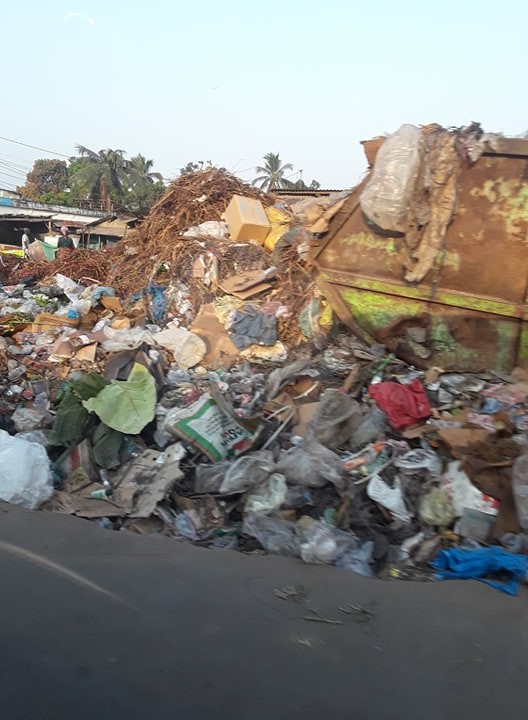By Edwin M. Fayia, III, fayiaedwin@gmail.com
Several research reports by Liberian and international sanitation institutions have on several occasions confirmed that the country’s unending sanitation crisis is indeed an all-time menace and nightmare for both Liberians and foreign residents.
On top of that, various research reports have pointed out that numerous strategies have also been crafted aimed at enhancing the collection and disposal of mountain-size heaps of garbage in Monrovia and adjacent localities
No practical and genuine solutions have been found, with the people being put at greater risk of contracting water-and airborne-diseases arising from sanitation and environmental problems caused by wastes.
To make matters worse, most dumpsites created by the municipal government of Monrovia are among the major contributing factors to the overall unhygienic conditions in many areas.
In central Monrovia, septic tanks serving residential and commercial buildings on the major streets of Benson, Randall, Broad and Ashmun, have outlived their usefulness as manifested by the constant spilling of faeces from burst pipes and septic tanks to motor roads and sidewalks, thus exposing pedestrians and business entities to grave health hazards.
Sanitation observers told this news outlet that only heaven and other high-placed Municipal Government of Monrovia knows whether this entity has any plans in the making to practically address numerous sanitation challenges confronting Liberians and business entities.

Sanitation pundits also intimate that if there were ever such plans, three years have gone in the breeze and the Monrovia City Corporation (MCC) continues to the old mode of collecting and disposing of garbage.
In a related development, several citizens and foreign residents have repeatedly stressed the need for people in overpopulated Monrovia to refrain from dropping plastic bags and other biomedical wastes just anywhere, which contributes to environmental degradation at high proportions.
On the flipside, however, the World Bank Country Office has over the years been giving substantial support to the Urban Waste Management Program in Liberia. This has witnessed some minimum improvements in the garbage crisis in Monrovia and its environs.
Additionally, some critical support partners such as UNICEF, UNDP and other sanitation investments have provided financial and material assistance to help address the waste crisis in and around the capital.
Had suggestions and recommendations advanced by some urban planners to the Municipal Governments of Monrovia and Paynesville been practically implemented, the unregulated disposal of plastic bags and other harmful wastes would have been history in the dustbins.
Distinguished amongst the grave and glaring hotspots for the biggest areas that played host to waste disposal are the commercial hubs of Red-Light, Duala, Rally Time Market (on the UN Drive) and the Nancy B. Doe Jorkpen Town Market in Sinkor.
A very disenchanted resident of Monrovia, Brutus Allen Sackie, 55, of Rock Spring Valley, Slipway community, a Monrovia slum, told this news organ that if the appropriate and practical strategies are not crafted, instituted and implemented, the challenges of garbage collection and disposal will become insurmountable in the days ahead.

